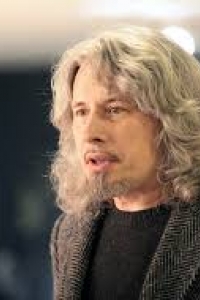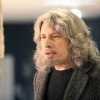
Humane Sorokin In A Disturbed World
Twentieth century heard the anguished throes of a war-torn, battered and severely ravaged world with mammoth destructions and devastations were followed by bloodiest wars and most violent revolutions which also claimed millions of invaluable lives. Human existence as a result was badly battered and human souls totally numbed by their miserable plight. The peaceful and fluent march of human civilisation towards glorious progress received severe impediment. As a result the harmonious social fabric as well as the politico-economic edifice tended to crumble against the crossplay of so many centrifugal and disrupting tendencies.
Humanity, under the circumstances, was most baffled by the disturbing and confusing cacophony as a crowd of new and still newer bewildering ideals like socialism, authoritarianism, dictatorship, democracy etc made the entire socio-politico-economic culture of men too complex and intricate to be successfully integrated and assimilated into a harmonious whole. Human minds, as a result, lost their focus, faced with so many trends of thoughts, some of which were strongly harmful and hedonistic. A reconstruction of the erroneous situation into a more congenial environment seemed imminently necessary under the circumstances.
Moreover, humanity’s problem was further aggravated by lack of efficient and commendable leaders who could successfully execute and formulate sound plans of peaceful and prosperous living. As a result mankind was exposed to many wars fought for avaricious ends, instead of the much promised peace and thereby got subjected to an inferno of misery.
Sorokin therefore writes that during the catastrophes of twentieth century, humanity in the gullible quest of following different leaders had been time and again subjected to abject misery which was largely the results of the “dismal failures of the irresponsible plans of the leaders.”
The general crisis of the time was further intensified by the grave degeneration which innumerable strife worsened. The emergence of a very unruly and excessively flamboyant sensate culture dimmed man’s ethical and altruistic considerations. Thus some harmful, some corrupt and some misguiding influences made the human civilisation vulnerable to imminent danger and put peace at grave stake. The glory and resonance of an ideal and harmonious human existence was greatly tarnished and whatever remained was just a mauled and tainted vignette of human existence.
After the most harrowing nightmares following the bloodiest wars of the time, human society finally became so disgusted and exhausted of the ensuing trauma, that they now remained earnestly yearning for peace and order. It just wanted some respite from all the gory bloodshed and widespread devastation. It was now desperate above anything else for his very own survival and remained a lot more indifferent towards the survival of others. Instead of the belligerent chivalry men now sought a safer refuge in ways of love, peace, compassion and such other ways to salvation that came about through benevolence and peace. Sorokin writes about this, “Bleeding from war wounds and frightened by the atomic Frankenstein of destruction, humanity is desperately looking for a way out of the deathtrap. It craves for life instead of inglorious death. It wants peace in place of war. It is hungry for love in lieu of hate. It aspires for order to replace disorder. It dreams of a better humanity, of greater wisdom, of a finer cultural mantle for its body than the bloody rags of its robot civilisation.”
To satisfy this “eternal quest” of human society for a more congenial, ideal and peaceful world, many social thinkers have come forward deliberating on the various nuances of the decadent environment and seeking various solutions out of the disturbing conditions human existence. Pitrim Sorokin remains one such outstanding thinker seeking to provide guidelines to reconstruct human society in a fairer, happier and less inhospitable manner.
Advocacies- political, social, religious, all were forthcoming to rectify a ravaged ravine. But the most effective probably was the healing touch of sympathy and love.
ALTRUISM-LOVE-SYMPATHY-OTHERINFLUENCES-FOR AN IDEALLY RECONSTRUCTED SOCIETY.The situation seemed hopeless at times. Nothing seemed effective enough to salvage the situation. In this utterly hopeless milieu, the only factor that seemed likely to rectify the imperfections was the running of strong sentiments of love or sympathy and “free cooperation in the relationship of persons and groups.”
In a harmonious and peaceful society, man is inherently good and capable of loving his neighbours and is capable of feeling sympathetic towards the deprived souls. In an ideal society there are cooperating individuals who are capable of feeling genuine affection towards others. In an ideal situation, altruistic and philanthropic conduct of individuals is most needed for general welfare of society. Indeed, a society consisting of only thoroughly egoistic members is much less likely to survive and would be totally devoid of any vestige of peace and harmony whatsoever. A society of egoistic men would not only rob its creative trends but also be subjected to “incessant struggle”, “bloodshed”, suspicion, and mutual antipathy that would rigidly hamper the growth of a peaceful social reconstruction of any time under any circumstances.
The only rectifying endeavour towards creation of an ideal creative society could be fruitful if the social members have the capacity to love, sympathise and show compassion to the needy ensuring mutual aid and’ compassion and fair treatment. Of such a society of general goodfeeling towards others, Sorokin writes, “burdens are borne easily, life is lived meaningfully, and serenity and peace of mind tend to prevail” Therefore altruism, philanthropy or fellow feelings are most essential and ideal for a perfectly reconstructed society of noble-minded citizens.
ALTRUISM-LOVE-SYMPATHY-OTHERINFLUENCES-FOR AN IDEALLY RECONSTRUCTED SOCIETY.The situation seemed hopeless at times. Nothing seemed effective enough to salvage the situation. In this utterly hopeless milieu, the only factor that seemed likely to rectify the imperfections was the running of strong sentiments of love or sympathy and “free cooperation in the relationship of persons and groups.”
In a harmonious and peaceful society, man is inherently good and capable of loving his neighbours and is capable of feeling sympathetic towards the deprived souls. In an ideal society there are cooperating individuals who are capable of feeling genuine affection towards others. In an ideal situation, altruistic and philanthropic conduct of individuals is most needed for general welfare of society. Indeed, a society consisting of only thoroughly egoistic members is much less likely to survive and would be totally devoid of any vestige of peace and harmony whatsoever. A society of egoistic men would not only rob its creative trends but also be subjected to “incessant struggle”, “bloodshed”, suspicion, and mutual antipathy that would rigidly hamper the growth of a peaceful social reconstruction of any time under any circumstances.
The only rectifying endeavour towards creation of an ideal creative society could be fruitful if the social members have the capacity to love, sympathise and show compassion to the needy ensuring mutual aid and’ compassion and fair treatment. Of such a society of general goodfeeling towards others, Sorokin writes, “burdens are borne easily, life is lived meaningfully, and serenity and peace of mind tend to prevail” Therefore altruism, philanthropy or fellow feelings are most essential and ideal for a perfectly reconstructed society of noble-minded citizens.
The situation seemed hopeless at times. Nothing seemed effective enough to salvage the situation. In this utterly hopeless milieu, the only factor that seemed likely to rectify the imperfections was the running of strong sentiments of love or sympathy and “free cooperation in the relationship of persons and groups.”
In a harmonious and peaceful society, man is inherently good and capable of loving his neighbours and is capable of feeling sympathetic towards the deprived souls. In an ideal society there are cooperating individuals who are capable of feeling genuine affection towards others. In an ideal situation, altruistic and philanthropic conduct of individuals is most needed for general welfare of society. Indeed, a society consisting of only thoroughly egoistic members is much less likely to survive and would be totally devoid of any vestige of peace and harmony whatsoever. A society of egoistic men would not only rob its creative trends but also be subjected to “incessant struggle”, “bloodshed”, suspicion, and mutual antipathy that would rigidly hamper the growth of a peaceful social reconstruction of any time under any circumstances.
The only rectifying endeavour towards creation of an ideal creative society could be fruitful if the social members have the capacity to love, sympathise and show compassion to the needy ensuring mutual aid and’ compassion and fair treatment. Of such a society of general goodfeeling towards others, Sorokin writes, “burdens are borne easily, life is lived meaningfully, and serenity and peace of mind tend to prevail”. Therefore altruism, philanthropy or fellow feelings are most essential and ideal for a perfectly reconstructed society of noble-minded citizens.
An important element aiding the cause of ideal social regeneration. A major cause of this, as pointed out by Johnston in his “PITRIM SOROKIN: AN INTELLECTUAL BIOGRAPHY’, is because considering the increasing trend towards globalisation leading to a corresponding global shift in socio-cultural value system, characterised by western pop culture and the deterioration of collective bonds of community and kinship, has deprived the whole societies of their traditional spiritual and cultural reference points and bred disturbing patterns of social and spiritual alienation. Therefore the requirement for a proper manner of regenerating this haywire social course needed to be rectified. Thus men needed to come out from their claustrophobic alienation and the most effective way to do it would be to reach out to each other through an overtly altruistic interaction.
Johnston further implies in the same book that though due to undoubted improvement in science and technology a major improvement was registered in lives of people like ensuring a better access to education, food or betterment in their health conditions, abject poverty remained only too conspicuous so that needs for soothing altruistic overtures remained the most imminent need of the time.
Considering so much clamour over the primary elements concerning how an individual is expected to behave in his altruistic gestures, different parameters have of altruistic disposition among its fellow citizens really ennobles a social setup and a very effective manner of ensuring this ennobling effort can be manifested through yoga. The ultimate aim of yoga being “Union with the Absolute”, an elevation of human mettle is inspired in the process which ultimately contributes to the growth of a healthier and essentially good social order. The three yogic ways of contributing to this common goal are as follows:
a)KARMA YOGA- This is practised through an absolutely “unselfish work” for the wellbeing of others and can be practised even living a “busy, throbbing everyday” life.
b)BHAKTI YOGA- This entails the life of an ascetic and is practised through total devotion and love for the Absolute.
c)JNANA YOGA- Even the highest creative activities which contributes heavily to the benefit of a society can pledge one in service of the Absolute. This can even include creative activities in science or religion or even ethics and fine arts. Thus considered, Francis of Assisi or Beethoven or Sir Isaac Newton are all great altruists who have made invaluable contributions towards a bid to further enrich an ennobled society with their beneficial activities, knowledge and wisdom.
Therefore it is to be accepted that any activity or thought of man that results in a distinct and substantial increase in human welfare and by whichever way it might be achieved, should be accepted as a relevant way of practising altruism.
The most vital problem lies in the perception of the actual meaning behind the term of “altruism”. In the absence of clear-cut conception of man regarding the parameters of altruism, many pseudo or unreal versions of the term has confused human minds, much to the detriment of the growth of an ideally reconstructed social setup where love and sympathy motivates all human activities. However, it is to be noted that if altruism has to play any relevant role at all in effecting a larger social regeneration, then only the “real” variety of it needs to be practised. This “real” variety demanded an individual to play a little more role than is rightfully assigned to or is expected from him as a member of the society, aiding the cause of its better regeneration. Explaining the true fibre of altruism, Sorokin writes, “Real altruism begins only when the minimum is transcended: when an individual freely sacrifices his rightful interest in favour of another, refraining from harming him even though his legal rights entitle him to do so, and helping him in various ways, though no law demands of him such action.” Real altruism therefore entails a very exalted standard of human disposition when one rises not only above his own interests but also pauses to ponder over how to improve the living conditions of others and thus aid the cause of greater social regeneration. This type of conduct is best reflected in the conducts of such great men like Buddha, St. Francis of Assisi or Jesus Christ. The prescription of human conduct as written in the Sermon of Mount, moreover , correspond closest to perhaps what real altruism would mean that could contribute to genuine welfare of human beings in a society bound by love and sympathy. However, one should be cautious in accepting those altruistic prescriptions which have been “preached” but have never been “practised”. These infact constitute “pseudo altruism” whose relevance in contributing to reconstruct a better society remained untested and therefore should be sceptically considered by men while following prescribed models of these particular creeds. Similarly, for a good social regeneration, anti-altruistic, nonaltruistic or even blind altruistic overtures like a mother’s blind faith in her faultering child should be carefully avoided.
TOWARDS A BETTER TOMORROW- MAN AS HIS OWN SAVIOUR
No situation is ever hopeless The scope for a better social reconstruction leading the road to a better tomorrow for human society is always present even when the human society passes through its worst crisis. With a little reorganisation, reorientation and modification in the political, social and economic field, world can be made into a better place to live in. In this new social setup, Sorokin foresees a strifeless human society. He says that this new order is not to be animated by a struggle for existence but is to be bound by universal friendship, sympathy and unselfish love and ‘mutual aid of everyone to everybody.’
In this new society a pronounced emphasis would be given on familistic relationships and organizations. Even in case of countries like Soviet Union, the familistic consideration actually endows it with a ‘hidden power’, moral prestige, strength and partial moral justification. Indeed in a way this system did free millions from their earlier enslaved status from rulers having absolute powers. Moreover, many welfare oriented activities like building of highways, development of industries all took place under this system and political collectivism, nationalization and partial equalization bound citizens into a feeling of collective ‘we’, united into one family by mutual sympathy and responsibility therefore familistic considerations are of utmost importance to plan a proper social reconstruction bid at all times.
The most imperative factor for the most ideal social reconstruction is the presence of ‘love’ as the most important factor in influencing human behaviour. ‘Love’, Sorokin states as the mysterious power to unify or even mitigate aggressive tendencies, to transform ‘inimical relationships to amicable’ ones, to give life enriching mental and moral health to arrest ‘criminal, morbid and suicidal tendencies’, to pacify international conflicts and to ennoble and enrich human society as the whole. Thus Love has the tremendous power to augur the best benefits for human society and prevent new wars and even alleviate alarmingly increasing interhuman strive.
Related to an increased necessity for love also remained the necessity to redirect the forces of strife and harness them into an energy of love that would ultimately usher in a peacefully and reconstructed human society this will eradicate many undesirable evils that plagued human society with agonies like poverty, criminality, ignorance, stupidity, suffering, ugliness etc. It would infact inspire man’s creative growth and ensure man’s mental and moral well being.
The required transmutation of socio-cultural institutions, it is to be noted that what exactly was required under the situation was veritable revolutions of minds and groups. In this process there should be no place for coercion or external compulsion, instead, It must come from a conscious urge of man motivated by his inner conscience to change the wrongs and unfairness to a more perfect and ideal setup. For the purpose, man must himself seek to generate creative and altruistic tendencies within himself, discharge his social and cultural functions responsibly and execute all beneficial lines of actions through sound plans that would ultimately augur to the benefit of human society .To improve further the process of an ideal social reconstruction the necessity of a good, moral spiritual leadership has become absolutely imperative.
The greatest hope for human society and its perfect reconstruction perhaps lay in the fact that man himself is tired of all aggressions, belligerence and falsehoods he yearns most eagerly for peace. He himself, above anything else can act as his own savour, if only he has the courage to fight the wrongs and the difficulties and has the wisdom to rightly mobilize the resources at his stake hence Sorokin concludes, ‘All that is necessary is the supreme mobilization of our available mental and moral forces, control of subconscious, drives by the conscious and superconcious factors and unflinching determination to meet courageously all the difficulties of the pilgrimage”. It is humanity to decide its destiny!’ The journey to usher in a better tomorrow through an ideal social reconstruction at the time of nineteenth-twentieth centuries seemed to be humanity’s biggest responsibility at the time which he must undertake with utmost dedication and determination to surmount all difficulties and usher in a ‘better tomorrow’ of a perfectly executed social reconstruction.
Barry V Johnston in his ‘Pitrim A Sorokin...An Intellectual Biography’ rightfully points out that due to earnest efforts of international development agencies improvement definitely was discernible in spheres like food, health education communication etc but still something was amiss. Abject poverty-physical, moral and social was still too conspicuous. Thus Sorokin’s advocacy of a social reconstruction through sympathy, love and altruism seems all the more relevance-then and down the ages even today, as the human society even now is far from being perfect.
.....................................................................................................................................................
About the Author






Comments